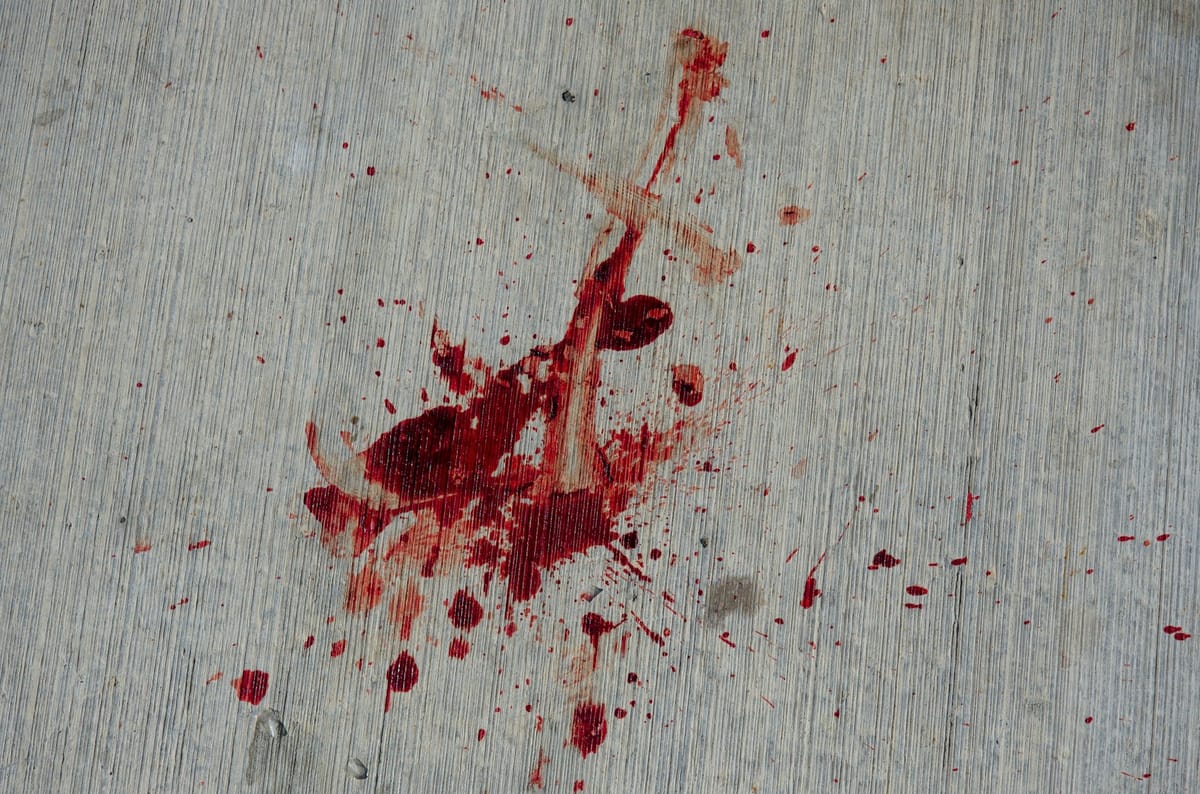Kashmir's Unfinished Trials

By the time I finished researching for this article, I was tempted to give it a click-bait title - "10 Terrorists Who Escaped Conviction for Their 1990s Crimes in Kashmir. Number 9 will shock you" But satire is a luxury history cannot afford. Too many people are already trying to erase or blur the facts of those years. This is an attempt to record them clearly.
The Winter of 1989-90
The winter of 1989-90 was one of the harshest winters of our lives. We Kashmiri Hindus fled our ancestral homes under the shadow of gunmen, terrorists who had already killed many and promised death to those who stayed.
Yet for more than three decades, the Indian state largely just looked away. Today, a handful of the most infamous names, Yasin Malik, Farooq Ahmad Dar a.k.a. Bitta Karate, Javed Ahmad Mir (Javed Nalka), are finally back in courtrooms. The question that refuses to fade is not whether these men are guilty. It is why justice took thirty-five long years to even begin its slow march
Celebrity Revolutionary
Yasin Malik
No figure embodies this paradox more than Yasin Malik, chief of the Jammu & Kashmir Liberation Front (JKLF). He was involved in the 1989 Rubaiya Sayeed (daughter of the then-Indian Home Minister Mufti Mohammed Sayeed) kidnapping, multiple killings and the January 1990 attack on Indian Air Force personnel in Rawalpora, Srinagar which killed four IAF officers. He was imprisoned from 1990 to 1994 but released without conviction for these specific crimes.
By the 2000s, Malik had rebranded himself as a 'peace activist' appearing at policy conclaves, meeting visiting dignitaries, including a sitting Prime Minister as part of the 'Track II' peace efforts. Television studios showed more interest in debating his ideas, than discussing his crimes.
In March 2020, he was charged under TADA for the 1990 IAF attack, but much later in May 2022, a Delhi court sentenced Malik to life imprisonment in a separate NIA terror-funding case.
The trials for the IAF killings, the Rubaiya Sayeed kidnapping and other killings are still pending despite eyewitness identifications, while the NIA seeks a death-penalty enhancement.
Confession Without Consequences
Farooq Ahmed Dar (Bitta Karate)
If Malik represents delayed prosecution, Dar represents something more sinister and darker - public confession without any consequences. In a 1991 television interview, he calmly admitted to killing "many" Hindus, believed to be around 30-40, including his first victim, young social worker and businessman he knew personally, Satish Tickoo in February 1990. He claimed to have received 32 days of armed training in pakistan-occupied Kashmir in 1988 and acted on orders from JKLF commander Ashfaq Majeed Wani.
Dar was arrested in June 1990 under the Public Safety Act (PSA) with 19 cases filed, but was released on indefinite bail in October 2006 after a TADA court in Jammu cited the prosecution's "total disinterest". He was released without conviction for these killings He lived freely in Srinagar for several years and even joined the JKLF political activity.
He was arrested in 2019 in a NIA terror-funding case. Despite his confessions, Dar has not been convicted for the murders he admitted to, including those of Satish Tickoo and BK Ganjoo. In March 2022, a Srinagar sessions court began hearing a case for Tickoo's murder, but it was postponed multiple times, and remains at the stage of framing charges. He was granted bail in June 2022. Thirty-five years after his televised confession, he still has no murder conviction!
The Others Who Walk Free
Several other terrorists were highly active in the 1990s. Kidnappings, assassinations, bombings, propaganda - you name it. Some of them live freely till date, some were killed, and some enjoy the hospitality of pakistan (surprise, surprise!).
Javed Ahmad Mir (Javed Nalka)
One of the founding JKLF terrorists and part of the 'HAJY' group (alongside Hamid Sheikh, Ashfaq Majid Wani, and Yasin Malik) was active in the early 1990s, including assassinations during this period and named with Malik in the IAF killings case. He was arrested in 2019, was granted bail, and charges were framed in 2020. The trial crawls along, while he remains free and politically active in Kashmir.
Javed Mir
The politician in plain sight, he was a JKLF commander in the early 1990s. He helped plan attacks on the Indian forces and intimidate Kashmiri Hindus before declaring a "renunciation of violence". He was arrested several times during that decade, but released each time without any convictions. He remains politically active today in the Hurriyat fold inside Kashmir.
Hizbul Mujahideen Leadership
Syed Salahuddin (Mohammad Yusuf Shah)
As the supreme commander of hizbul mujahideen, Salahuddin led numerous attacks, bombings and assassinations in the 1990s. He fled to pakistan in the early 1990s and continues to operate freely from there despite being designated a global terrorist by India and the US. India pressed pakistan for his extradition but (of course!) hizbul mujahideen isn't banned in pakistan.
Muhammad Ahsan Dar
Founder of HM in 1989. Involved in early terrorist activities including attacks on Indian forces and Kashmiri Hindu civilians. He was arrested in 1993 but released in 1999 as part of negotiations following the Indian Airlines flight 814 hijacking. Not convicted for specific 1990s crimes and is living a low-profile life in Kashmir.
Abdul Majeed Dar
Leader of Tehreek-e-Jihad-e-Islami, which merged with HM in 1990. Involved in terrorist operations in the Valley. Was arrested and released multiple times in the 1990s. He was never convicted and was later killed by rivals in 2003.
Hilal Ahmed Mir (Nasirul Islam)
Key HM commander and former leader of Ansarul Islam, which merged into HM in 1989. He quit HM in 1990 to form Jamiatul Mujahideen, continuing terrorist activities. He was never convicted and his current status is not known.
pakistan-Based Commanders
Maulana Masood Azhar
Harkat-ul-Mujahideen operative arrested in 1994, released in the 1999 IC 814 hijacking swap. He founded Jaish-e-Mohammed (JeM) in 2000. Was arrested in pakistan in 2002 and 2019 but released without charges. He remains a UN-designated terrorist but operates freely in pakistan.
Ahmed Omar Saeed Sheikh
HuM operative involved in 1994 kidnappings of Western tourists in Kashmir, was released in the 1999 IC 814 hijacking swap. He was convicted in pakistan for journalist Daniel Pearl's murder but was freed in 2021 by pakistan's supreme court.
Mushtaq Ahmed Zargar
HuM operative, arrested in 1992, and released in the 1999 IC 814 hijacking swap. He continues to live freely in pakistan.
Lashkar-e-Taiba Network
Hafiz Muhammad Saeed
Founder of LeT and Jamaat-ud-Dawa (JuD), directed LeT's entry into Kashmir in 1993, coordinating attacks on Indian forces and Hindu civilians. He has been arrested multiple times in pakistan and later released, was never convicted.
Zakiur Rehman Lakhvi
LeT commander, key recruiter and trainer in 1990s Kashmir. He was arrested in 2008 for the Mumbai attacks, but was granted bail in 2014 and continues to be free.
Abdul Rehman Makki
Second-in-command in LeT, focusing on logistics and propaganda. He never faced any trials and was never convicted for his actions in the 1990s. He later died in 2023.
The Lost Years
Why did it take so long? The answers lie scattered across court orders, politics and fear:
- Legal hurdles - TADA lapsed, evidence decayed, and witnesses fled the Valley Political expediency - terrorists were courted as 'stakeholders in dialogue', their violent pasts set aside in the 'hope' of peace.
- Judicial reluctance - in 2017 and again in 2022, the Supreme Court refused a blanket probe into the mass killings, leaving families to fight case by case. Witness safety and prosecution failures - confessions were retracted, witnesses were threatened, and key files lay dormant for decades.
During those lost years, men once feared as ruthless assassins attended conferences, were introduced as 'leaders', and treated as legitimate negotiators. This spectacle wasn't merely offensive, it signalled to survivors that the state's memory was negotiable and their suffering did not matter.
Many 1990s terrorists were detained under laws like the Public Safety Act (allowing 2-year detention without trial) or faced high acquittal rates due to lack of witnesses, from the fear of retaliation or solidarity. Issues such as judicial delays, evidence degradation, political dynamics, hostile witnesses, and pakistan's role all contributed significantly to releases without conviction or no conviction at all.
Late Reckoning
The tide shifted only after 2019, when the government banned the JKLF and launched fresh NIA investigations. Since then, Malik has been convicted, the Tickoo case reopened, and cold cases like the Sarla Bhat murder have seen new raids.
But justice that arrives after more than three decades is bound to carry a bitter aftertaste. The witnesses are old, evidence is thin, and many victims and their families died waiting.
Memory as Verdict
For the families of those killed - Girija Tickoo, Tika Lal Taploo, Sarla Bhat and countless others - no sentence can restore what was lost. The lives themselves, the lives of the survivors, their families, the trauma - how does one even begin to think of reparations? But delayed accountability is not meaningless. Every courtroom acknowledgment chips away at the convenient amnesia that once allowed confessed killers to attend conclaves and pose for photo-ops. Justice may still be crawling, but the record is finally being written.
And in the long history of Kashmir, sometimes the record itself is the first victory.





